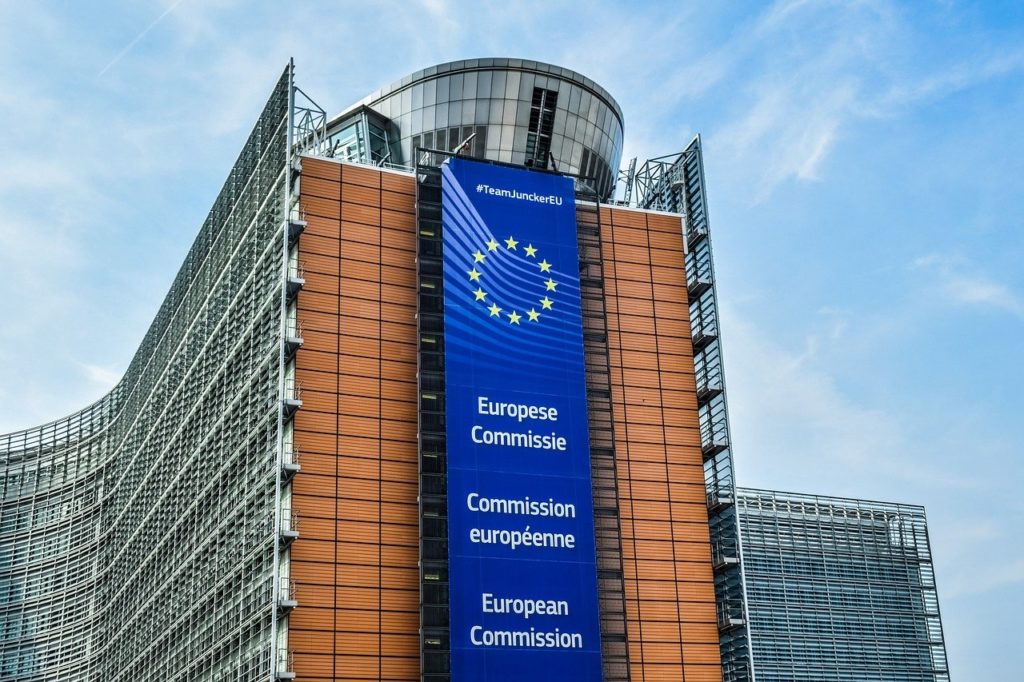The legal status of CBD products is now being revised by the European Union. The organization is debating whether CBD should be classified as a narcotic, which if applied would deeply affect the cannabis industry. Currently cannabinoids are listed in the EU Novel Food Catalogue and are therefore considered as food products subject to authorization.
The European Union might classify CBD as a narcotic


The trade with oils and extracts containing cannabidiol (CBD) is booming, but its legal basis has been uncertain for years. Now the European Union is considering whether CBD should be classified as a narcotic. With this decision, the manufacturers in the industry fear the end of their market.
In a current minor inquiry, Dr. Wieland Schinnenburg, a member of the Bundestag for the FDP parliamentary group addressed themselves to the Federal Government, and asks how it positions itself to the project of the European Union.
The non-psychoactive phytocannabinoid cannabidiol (CBD)’s anxiety-relieving, antiemetic, analgesic, sleep-inducing and spasmolytic effects have been extensively studied. CBD-containing products, which are often categorized as foods, are very popular, and are often requested from public pharmacies.
Find out more details about CBD and why the European Union is currently considering if CBD should be classified as a narcotic, and read the most important cannabis news with the Hemp.im mobile app.
Is CBD food or narcotics?
Currently, cannabinoids are listed in the EU Novel Food Catalogue and are therefore considered as food products – though are subject to authorization. In Germany, marketed CBD-containing oils and extracts are declared as food, occasionally also as medical products. Comparable products approved as medicinal products are currently not available.
For a more precise certainty on whether products are marketable, the Federal Office of Consumer Protection and Food Safety refers to the responsible higher state authorities. These proceed inconsistently in Germany.
While food is tolerated in some parts of the country, the city of Cologne, for example, has banned the sale of CBD foods in a general ruling. The Chamber of Pharmacists of Baden-Württemberg pointed out to pharmacists that even CBD preparations listed with central pharmaceutical numbers are not currently marketable.
The medical properties of CBD
Unlike tetrahydrocannabinol (THC), non-psychoactive cannabidiol does not focus on the activation of the cannabinoid receptors CB1 and CB2. Since CBD partially antagonizes the action of cannabinoid receptor agonists, we talk about allosteric binding to the corresponding receptors. Furthermore, cannabidiol inhibits the reuptake of the endogenous cannabinoid receptor ligand anandamide from the synaptic cleft.
Its antiemetic, spasmolytic, anxiolytic and antipsychotic effects are also explained by its interaction with various serotonin, TRPM8, TRBV1 and PPAR receptors. As a finished drug, it is currently only approved in Epidyolex for the treatment of Dravet and Lennox-Gastaut syndrome, two severe forms of epilepsy, at doses between 2.5 and 20 mg/kg/day. It is also indicated as a combination drug with tetrahydrocannabidiol for severe and moderate spasticity in multiple sclerosis.
In a meta-analysis published in the journal “Neuropsychopharmacology” in April 2020, cannabidiol showed generally strong tolerability and a low risk of adverse drug reactions.
Because CBD is a potent inhibitor of the hepatic isoenzymes CYP3A4 and CYP2C19, the study found isolated severe interactions with concomitant medication that many epileptics receive.
A clear announcement by the EU Commission could soon make the uncertain legal basis obsolete
In August 2020, EU Commission spokesman Reinhard Hönighaus told the industry association Cannabiswirtschaft “In the Commission’s preliminary view, CBD, which is obtained from the flowering and fertile tops of the hemp plant (Cannabis sativa L.), should be considered a narcotic that falls under the 1961 United Nations Single Convention on Narcotic Drugs”.
The decision to classify cannabidiol as a narcotic will be put to a vote in December 2020.
__
(Featured image by dimitrisvetsikas1969 via Pixabay)
DISCLAIMER: This article was written by a third party contributor and does not reflect the opinion of Hemp.im, its management, staff or its associates. Please review our disclaimer for more information.
This article may include forward-looking statements. These forward-looking statements generally are identified by the words “believe,” “project,” “estimate,” “become,” “plan,” “will,” and similar expressions. These forward-looking statements involve known and unknown risks as well as uncertainties, including those discussed in the following cautionary statements and elsewhere in this article and on this site. Although the Company may believe that its expectations are based on reasonable assumptions, the actual results that the Company may achieve may differ materially from any forward-looking statements, which reflect the opinions of the management of the Company only as of the date hereof. Additionally, please make sure to read these important disclosures.
First published in DAZ.online, a third-party contributor translated and adapted the article from the original. In case of discrepancy, the original will prevail.
Although we made reasonable efforts to provide accurate translations, some parts may be incorrect. Hemp.im assumes no responsibility for errors, omissions or ambiguities in the translations provided on this website. Any person or entity relying on translated content does so at their own risk. Hemp.im is not responsible for losses caused by such reliance on the accuracy or reliability of translated information. If you wish to report an error or inaccuracy in the translation, we encourage you to contact us.



Comments are closed for this post.